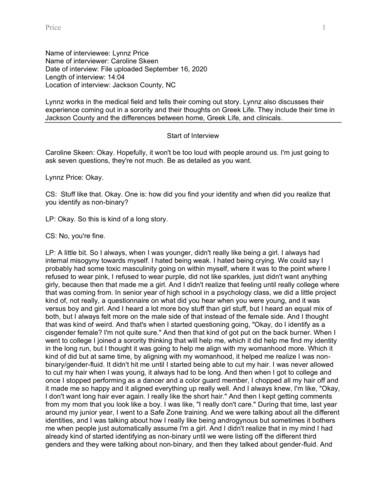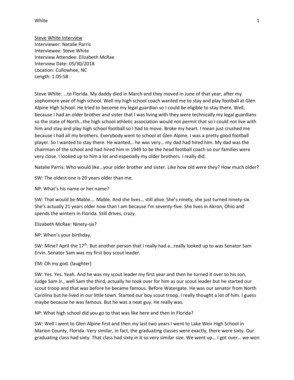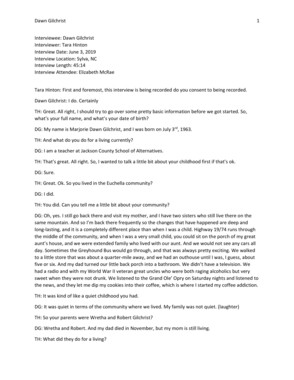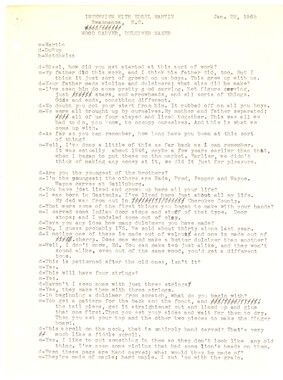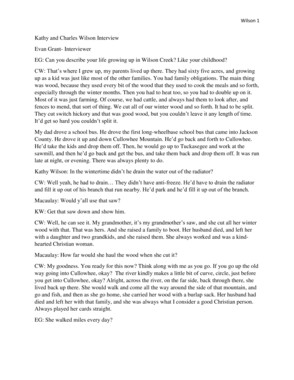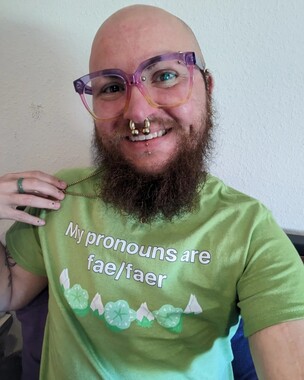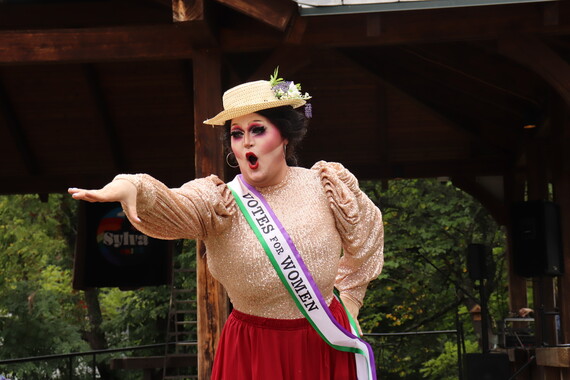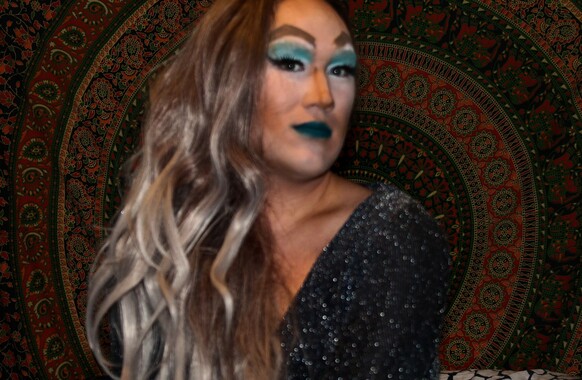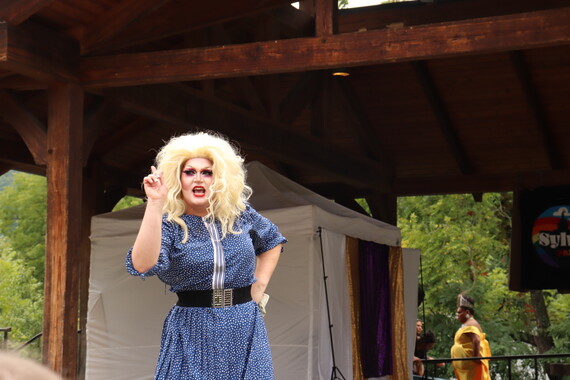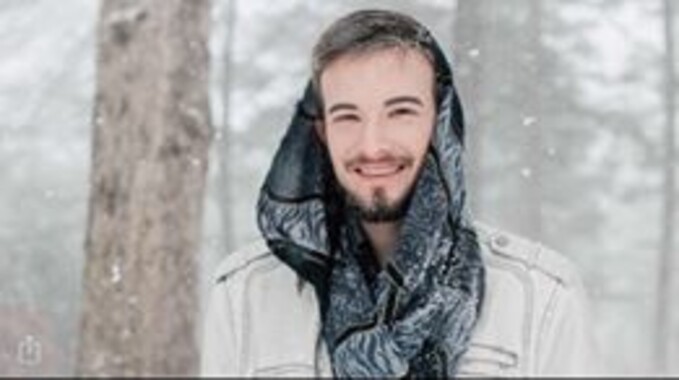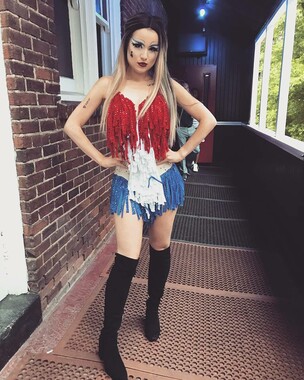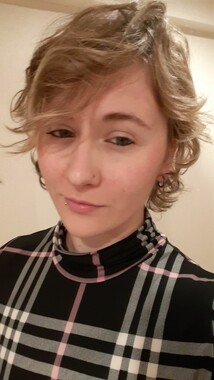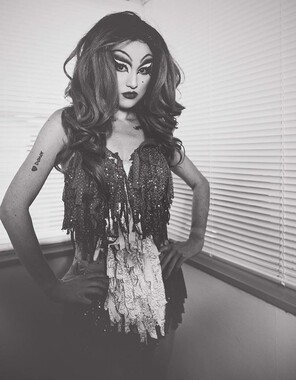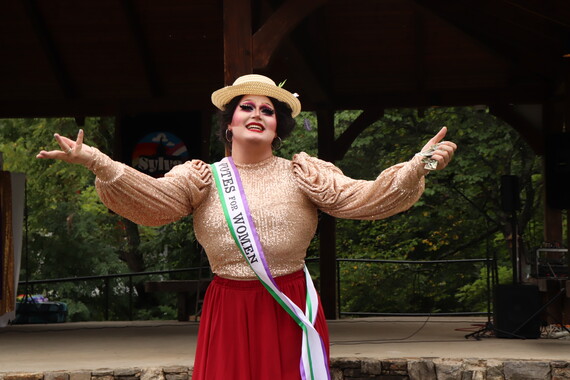Western Carolina University (21)
View all
- Canton Champion Fibre Company (2308)
- Cherokee Traditions (291)
- Civil War in Southern Appalachia (165)
- Craft Revival (1942)
- George Masa Collection (137)
- Great Smoky Mountains - A Park for America (3182)
- Highlights from Western Carolina University (422)
- Horace Kephart (998)
- Journeys Through Jackson (159)
- LGBTQIA+ Archive of Jackson County (90)
- Oral Histories of Western North Carolina (318)
- Picturing Appalachia (6617)
- Stories of Mountain Folk (413)
- Travel Western North Carolina (153)
- Western Carolina University Fine Art Museum Vitreograph Collection (129)
- Western Carolina University Herbarium (92)
- Western Carolina University: Making Memories (738)
- Western Carolina University Publications (2491)
- Western Carolina University Restricted Electronic Theses and Dissertations (146)
- Western North Carolina Regional Maps (71)
- World War II in Southern Appalachia (131)
University of North Carolina Asheville (6)
View all
- Allanstand Cottage Industries (62)
- Appalachian National Park Association (53)
- Bennett, Kelly, 1890-1974 (1463)
- Berry, Walter (76)
- Brasstown Carvers (40)
- Carver, George Washington, 1864?-1943 (26)
- Cathey, Joseph, 1803-1874 (1)
- Champion Fibre Company (233)
- Champion Paper and Fibre Company (297)
- Cherokee Indian Fair Association (16)
- Cherokee Language Program (22)
- Crowe, Amanda (40)
- Edmonston, Thomas Benton, 1842-1907 (7)
- Ensley, A. L. (Abraham Lincoln), 1865-1948 (275)
- Fromer, Irving Rhodes, 1913-1994 (70)
- George Butz (BFS 1907) (46)
- Goodrich, Frances Louisa (120)
- Grant, George Alexander, 1891-1964 (96)
- Heard, Marian Gladys (60)
- Kephart, Calvin, 1883-1969 (15)
- Kephart, Horace, 1862-1931 (313)
- Kephart, Laura, 1862-1954 (91)
- Laney, Gideon Thomas, 1889-1976 (439)
- Masa, George, 1881-1933 (61)
- McElhinney, William Julian, 1896-1953 (44)
- Niggli, Josephina, 1910-1983 (10)
- North Carolina Park Commission (105)
- Osborne, Kezia Stradley (9)
- Owens, Samuel Robert, 1918-1995 (11)
- Penland Weavers and Potters (36)
- Roberts, Vivienne (15)
- Roth, Albert, 1890-1974 (142)
- Schenck, Carl Alwin, 1868-1955 (1)
- Sherrill's Photography Studio (2565)
- Southern Highland Handicraft Guild (127)
- Southern Highlanders, Inc. (71)
- Stalcup, Jesse Bryson (46)
- Stearns, I. K. (213)
- Thompson, James Edward, 1880-1976 (226)
- United States. Indian Arts and Crafts Board (130)
- USFS (683)
- Vance, Zebulon Baird, 1830-1894 (1)
- Weaver, Zebulon, 1872-1948 (58)
- Western Carolina College (230)
- Western Carolina Teachers College (282)
- Western Carolina University (2008)
- Western Carolina University. Mountain Heritage Center (18)
- Whitman, Walt, 1819-1892 (10)
- Wilburn, Hiram Coleman, 1880-1967 (73)
- Williams, Isadora (3)
- Cain, Doreyl Ammons (0)
- Crittenden, Lorraine (0)
- Rhodes, Judy (0)
- Smith, Edward Clark (0)
- Appalachian Region, Southern (3032)
- Asheville (N.C.) (1945)
- Avery County (N.C.) (26)
- Blount County (Tenn.) (200)
- Buncombe County (N.C.) (1680)
- Cherokee County (N.C.) (283)
- Clay County (N.C.) (556)
- Graham County (N.C.) (247)
- Great Smoky Mountains National Park (N.C. and Tenn.) (535)
- Haywood County (N.C.) (3573)
- Henderson County (N.C.) (70)
- Jackson County (N.C.) (4926)
- Knox County (Tenn.) (61)
- Knoxville (Tenn.) (21)
- Lake Santeetlah (N.C.) (14)
- Macon County (N.C.) (421)
- Madison County (N.C.) (216)
- McDowell County (N.C.) (39)
- Mitchell County (N.C.) (135)
- Polk County (N.C.) (35)
- Qualla Boundary (982)
- Rutherford County (N.C.) (78)
- Swain County (N.C.) (2187)
- Transylvania County (N.C.) (270)
- Watauga County (N.C.) (12)
- Waynesville (N.C.) (86)
- Yancey County (N.C.) (72)
- Aerial Photographs (3)
- Aerial Views (60)
- Albums (books) (4)
- Articles (1)
- Artifacts (object Genre) (228)
- Bibliographies (1)
- Biography (general Genre) (2)
- Cards (information Artifacts) (38)
- Clippings (information Artifacts) (193)
- Copybooks (instructional Materials) (3)
- Crafts (art Genres) (622)
- Depictions (visual Works) (21)
- Design Drawings (1)
- Digital Moving Image Formats (2)
- Drawings (visual Works) (185)
- Envelopes (115)
- Exhibitions (events) (1)
- Facsimiles (reproductions) (1)
- Fiction (general Genre) (4)
- Financial Records (12)
- Fliers (printed Matter) (67)
- Glass Plate Negatives (381)
- Guidebooks (2)
- Internegatives (10)
- Interviews (823)
- Land Surveys (102)
- Letters (correspondence) (1070)
- Manuscripts (documents) (618)
- Maps (documents) (177)
- Memorandums (25)
- Minutes (administrative Records) (59)
- Negatives (photographs) (6192)
- Newsletters (1290)
- Newspapers (2)
- Notebooks (8)
- Occupation Currency (1)
- Paintings (visual Works) (1)
- Pen And Ink Drawings (1)
- Periodicals (194)
- Personal Narratives (10)
- Photographs (12977)
- Plans (maps) (1)
- Poetry (6)
- Portraits (4573)
- Postcards (329)
- Programs (documents) (181)
- Publications (documents) (2444)
- Questionnaires (65)
- Relief Prints (26)
- Sayings (literary Genre) (1)
- Scrapbooks (282)
- Sheet Music (2)
- Slides (photographs) (402)
- Songs (musical Compositions) (2)
- Sound Recordings (802)
- Specimens (92)
- Speeches (documents) (18)
- Tintypes (photographs) (8)
- Transcripts (329)
- Text Messages (0)
- A.L. Ensley Collection (275)
- Appalachian Industrial School Records (7)
- Appalachian National Park Association Records (336)
- Axley-Meroney Collection (2)
- Bayard Wootten Photograph Collection (20)
- Bethel Rural Community Organization Collection (7)
- Blumer Collection (5)
- C.W. Slagle Collection (20)
- Canton Area Historical Museum (2110)
- Carlos C. Campbell Collection (564)
- Cataloochee History Project (64)
- Cherokee Studies Collection (4)
- Daisy Dame Photograph Album (5)
- Daniel Boone VI Collection (1)
- Doris Ulmann Photograph Collection (112)
- Elizabeth H. Lasley Collection (1)
- Elizabeth Woolworth Szold Fleharty Collection (4)
- Frank Fry Collection (95)
- George Masa Collection (173)
- Gideon Laney Collection (452)
- Hazel Scarborough Collection (2)
- Hiram C. Wilburn Papers (28)
- Historic Photographs Collection (236)
- Horace Kephart Collection (861)
- Humbard Collection (33)
- Hunter and Weaver Families Collection (1)
- I. D. Blumenthal Collection (4)
- Isadora Williams Collection (4)
- Jesse Bryson Stalcup Collection (47)
- Jim Thompson Collection (224)
- John B. Battle Collection (7)
- John C. Campbell Folk School Records (80)
- John Parris Collection (6)
- Judaculla Rock project (2)
- Kelly Bennett Collection (1482)
- Love Family Papers (11)
- Major Wiley Parris Civil War Letters (3)
- Map Collection (12)
- McFee-Misemer Civil War Letters (34)
- Mountain Heritage Center Collection (4)
- Norburn - Robertson - Thomson Families Collection (44)
- Pauline Hood Collection (7)
- Pre-Guild Collection (2)
- Qualla Arts and Crafts Mutual Collection (12)
- R.A. Romanes Collection (681)
- Rosser H. Taylor Collection (1)
- Samuel Robert Owens Collection (94)
- Sara Madison Collection (144)
- Sherrill Studio Photo Collection (2558)
- Smoky Mountains Hiking Club Collection (616)
- Stories of Mountain Folk - Radio Programs (374)
- The Reporter, Western Carolina University (510)
- Venoy and Elizabeth Reed Collection (16)
- WCU Gender and Sexuality Oral History Project (36)
- WCU Mountain Heritage Center Oral Histories (25)
- WCU Oral History Collection - Mountain People, Mountain Lives (71)
- WCU Students Newspapers Collection (1923)
- Western North Carolina Tomorrow Black Oral History Project (69)
- William Williams Stringfield Collection (2)
- Zebulon Weaver Collection (109)
- African Americans (390)
- Appalachian Trail (35)
- Artisans (521)
- Cherokee art (84)
- Cherokee artists -- North Carolina (10)
- Cherokee language (21)
- Cherokee pottery (101)
- Cherokee women (208)
- Church buildings (190)
- Civilian Conservation Corps (U.S.) (114)
- College student newspapers and periodicals (2012)
- Dams (115)
- Dance (1023)
- Education (222)
- Floods (63)
- Folk music (1015)
- Forced removal, 1813-1903 (2)
- Forest conservation (220)
- Forests and forestry (1198)
- Gender nonconformity (4)
- Great Smoky Mountains National Park (N.C. and Tenn.) (181)
- Hunting (47)
- Landscape photography (25)
- Logging (122)
- Maps (83)
- Mines and mineral resources (9)
- North Carolina -- Maps (18)
- Paper industry (38)
- Postcards (255)
- Pottery (135)
- Railroad trains (72)
- Rural electrification -- North Carolina, Western (3)
- School integration -- Southern States (2)
- Segregation -- North Carolina, Western (5)
- Slavery (5)
- Sports (452)
- Storytelling (243)
- Waterfalls -- Great Smoky Mountains (N.C. and Tenn.) (66)
- Weaving -- Appalachian Region, Southern (280)
- Wood-carving -- Appalachian Region, Southern (328)
- World War, 1939-1945 (174)
Interview with Lynnz Price, transcript
Item
Item’s are ‘child’ level descriptions to ‘parent’ objects, (e.g. one page of a whole book).
-
-
Price 1 Name of interviewee: Lynnz Price Name of interviewer: Caroline Skeen Date of interview: File uploaded September 16, 2020 Length of interview: 14:04 Location of interview: Jackson County, NC Lynnz works in the medical field and tells their coming out story. Lynnz also discusses their experience coming out in a sorority and their thoughts on Greek Life. They include their time in Jackson County and the differences between home, Greek Life, and clinicals. Start of Interview Caroline Skeen: Okay. Hopefully, it won't be too loud with people around us. I'm just going to ask seven questions, they're not much. Be as detailed as you want. Lynnz Price: Okay. CS: Stuff like that. Okay. One is: how did you find your identity and when did you realize that you identify as non-binary? LP: Okay. So this is kind of a long story. CS: No, you're fine. LP: A little bit. So I always, when I was younger, didn't really like being a girl. I always had internal misogyny towards myself. I hated being weak. I hated being crying. We could say I probably had some toxic masculinity going on within myself, where it was to the point where I refused to wear pink, I refused to wear purple, did not like sparkles, just didn't want anything girly, because then that made me a girl. And I didn't realize that feeling until really college where that was coming from. In senior year of high school in a psychology class, we did a little project kind of, not really, a questionnaire on what did you hear when you were young, and it was versus boy and girl. And I heard a lot more boy stuff than girl stuff, but I heard an equal mix of both, but I always felt more on the male side of that instead of the female side. And I thought that was kind of weird. And that's when I started questioning going, "Okay, do I identify as a cisgender female? I'm not quite sure." And then that kind of got put on the back burner. When I went to college I joined a sorority thinking that will help me, which it did help me find my identity in the long run, but I thought it was going to help me align with my womanhood more. Which it kind of did but at same time, by aligning with my womanhood, it helped me realize I was non-binary/gender-fluid. It didn't hit me until I started being able to cut my hair. I was never allowed to cut my hair when I was young, it always had to be long. And then when I got to college and once I stopped performing as a dancer and a color guard member, I chopped all my hair off and it made me so happy and it aligned everything up really well. And I always knew, I'm like, "Okay, I don't want long hair ever again. I really like the short hair." And then I kept getting comments from my mom that you look like a boy. I was like, "I really don't care." During that time, last year around my junior year, I went to a Safe Zone training. And we were talking about all the different identities, and I was talking about how I really like being androgynous but sometimes it bothers me when people just automatically assume I'm a girl. And I didn't realize that in my mind I had already kind of started identifying as non-binary until we were listing off the different third genders and they were talking about non-binary, and then they talked about gender-fluid. And Price 2 for me, gender-fluid is kind of the same thing as non-binary, it's just more of a detailed description of what it is for me. And gender-fluid, the definition is: feeling like you flow inbetween male and female and sometimes you don't feel anything, sometimes you feel everything. And it's more of a spectrum than the strict binary things. And that hit home to me, and I knew immediately that's exactly what I've been feeling my whole life. And I went home and I told my fiancé and he was like, "Yeah, that fits you perfectly. And we made the decision to try they/them pronouns. And ever since then, my mental health has improved, everything has improved. It made so much sense. Once I found out that title, everything clicked. CS: That's great. LP: Everything I'd been experiencing when I was young, and now had finally clicked. And I finally felt like I wasn't alone and I wasn't broken. CS: Yeah. LP: For the first time. CS: That is great. How is it currently working and living in Jackson County? LP: Repeat that question. Sorry. CS: How is it currently working and living in Jackson County with your identity? LP: So with Jackson County, I will say on campus I'm very open about it. At my clinicals when I'm... Because I do have clinicals that are outside of Jackson County. But I went to South Carolina at a Lutheran school, which was very interesting. However, I was determined to be more open. I was very careful who I was out with, because you kind of have to be careful in the South on who you're out with, especially with Jackson County. I have a job where I work with some older people and I am not out with them, but the younger counterparts I am very open with them. So it depends on how I know the person. And this has gotten better once I've gotten more confident that I'm way more out in Jackson County. And I will say for the most part, if you ask me, I'm very open about it. But with the older generation, I never really correct them, I never really tell them what's going on. CS: Okay. Did it worry you coming out in Jackson County, a very small, somewhat conservative town, did that worry you at all? LP: It actually did worry me a lot, especially with me wanting to become a healthcare provider; I was terrified what that was going to do to my chances of actually practicing. So I will say I was closeted for a while. Once I discovered it, I think I came out about a couple of weeks later because it was just killing me that I didn't tell people. It was killing me once I finally figured out what I was that no one else knew and no one else knew my pronouns. I was very nervous coming out to my class, because they were the first group I decided to come out to, and then my sorority. And everyone was super accepting, minus a couple of people in my class who are of a conservative nature and who are from this county. They just haven't talked to me. And to be honest, I really don't care at this point. But yeah, it was very scary. And at first I was worried that I was going to have to closet myself at clinicals and not be able to be who I am. However, every single medical care provider I've worked with has always been super excited that I want to be Price 3 open and has asked me to be open with the patients, because they have noticed that a lot of patients are not being true to themselves and not opening up and that's affecting our care. CS: Gotcha. LP: It was worrying at first, and I'm still always constantly worried when I go to a new clinical site or a new area in Jackson County. Can I be open? But at the same time, I would rather be brave and let somebody know that this exists and that it's okay to be open than to hide. CS: Yeah, I agree. LP: I hope I answered that question. CS: Yes, you did. You did. Number four: was it hard coming out in Greek life? LP: A little bit. CS: Okay. LP: I will say there was a big point of fear- CS: There's another question about Greek life, about support. LP: Okay. CS: There's more questions. LP: You're good. It was actually, for me, pretty hard coming out to Greek life because I had noticed... I told my little and her response was, "I already knew that." And I was like, "Okay, thanks." That was the same response as my fiancé, by the way. I had to discuss with a certain ISI board member; if I came out, will I have to de-sister? Will I have to early alum? Will I have to non-associate with Alpha Gamma? And that's when I found out that technically, after becoming a sister, it doesn't matter what you identify as, you will always be an Alpha Gamma, unless you are a trans man. Which I understand why, because it's a man in a sorority for- CS: Sisterhood. Yes. LP: ... Sisterhood and everything. But I will say that it was very nerve-racking, especially with all these sisters who knew me as female and then having to come out to them and slowly correct them over time. And I also got very nervous when the new pledge class came in because I wasn't around, so I couldn't really tell them everything. But the older sisters who knew me really closely made sure that they knew. So it was really scary at first. I will say I'm more open about it to my sorority, but if other sororities ask, I will tell them. But I won't volunteer that information as kind of afraid to be like... not really shadow-banned but, in a sense, shadow-banned. CS: Right. Yeah. Price 4 LP: Because CPC asked me to do some things for them for a cute little award for academics and I was like, "My pronouns are they/them." And they're like, "Okay." I was like, "Could you please..." I was physically scared to ask them to do that. Because CPC is... I won't say our CPC is not inclusive but at times it does feel that way, where they want the typical sorority girls and they don't want the non-typical sorority girls or non-typical sorority persons. So there was some fear with that. So I will say I'm open with my sorority, but others ish, if they know me, they know. So I know several fraternity men know about my identity because they're in my class, and they were more hyped about it than my sisters. CS: Wow. Wow. LP: Yeah. CS: Another question is: how has the support in Greek life been since coming out, and does it fit the stigma that you have to be this perfect person to be in a Greek organization? LP: Can I read the question? CS: Yeah. Yeah, of course. LP: Okay. CS: Number five. LP: Number five, okay. The support has been hit-or-miss. I've been getting support from people who know me and who actually care about me. I do know some of the sisters who I am not as close with no longer talk to me because of it. And I do know sisters who are a little bit more conservative in their views, which I understand they have a right to their view. They do respect me to a point, but they will never come out and talk to me personally or try to have an interaction because of how I identify as. So a lot of the support has come from my very close friends and my fiancé and my program that I'm in. I haven't gotten a lot of Greek life support because there's not a lot of non-binaries or gender-fluid or third-gender people in Greek life that are open anyways. In Greek life, it always is stigmatizing female, which I understand. It is a sorority, but at the same time, it is now 2020, that maybe we should be looking at not just female, a traditional female. Which is technically part of the sorority, but also being inclusive of non-binary. CS: Got you. LP: And then, does it fit the Sigma... I will say the lack of support I sometimes felt has been to be because I'm not the perfect person. Just because I cut my hair short and I dress differently. And yeah, some sisters are glad that I'm very androgynous in how I dress and how I'm true to myself, but I know other sisters in their heads are like, "Can you just put on a freaking dress and act?" CS: Yeah. LP: It's been hit-or-miss. It depends on the person and how close I have been with them. Price 5 CS: Number six: is there any difference with how people act towards you in your hometown versus Cullowhee and Jackson County? LP: I don't really talk with a lot of people from my hometown, but the ones who I do are very close and they were like, "We kind of already knew." But I do come from a more conservative hometown. CS: Got you. LP: So my mother has told me I'm not allowed to tell my family. I have to kind of closet myself whenever I go home because all of her friends, even if they know, will constantly misgender me, because they are on my mother's side with that. So I will say it's probably healthier for me here in Cullowhee with the people who I actually associate with at all times who love me. CS: Yes. And is there any advice for somebody who could be struggling with their identity and gender norms and any groups on campus? It doesn't have to be just Greek life, any other clubs or organizations. LP: Roll with your comfort level. If you don't feel comfortable coming out with somebody, it's not because you're broken, it is okay to be fearful. But also don't be afraid to step out of your boundaries. You have to eventually find your own voice, because it sucks when you don't tell people how you are, and it's very gender-dysphoric at times. And that could be worse on your mental health aspect. Telling people, for me, has helped my mental health immensely and has just made me a better person overall, has helped me find my voice. And for those who are questioning, if you need someone, anyone, and the... not the intercollegiate thing. Intercultural place, they have a lot of people who are Safe Zone trained if you need to talk to somebody. Find the rainbow flags that are Safe Zone trained. There are plenty of people on campus that are Safe Zone trained, talk to them, they can point you resources if you want to research more before you come out or if you don't know how to come out. And then if you do come out and people don't accept you for who you are, don't think of it as you're broken, think of it as they're just as close-minded and they can't handle you being yourself. CS: Is there anything else you want to add? I know it's raining, but is there anything else you want to say, any extra add-ons? LP: I will say I never regretted coming out. I never regretted being true to myself. At times, it's kind of a pain in the butt because everyone... all manuals have she/he and I'm like, "Can you just put they? That's a neutral term." That's just the thing. And that's in a lot of things. I will say it was reinsuring when Alpha Gamma afterwards in their... So we do a yearly census and everything, they did have my gender identity there, so that made me really happy. But I also found out later on that had I come out as gender-fluid before going through recruitment, I would not be allowed to recruit. So I kind of wish CPC will do something about that, and including trans women and non-binary in their recruitment process. CS: Gotcha. All right. Thank you so much. LP: You're welcome.
Object
Object’s are ‘parent’ level descriptions to ‘children’ items, (e.g. a book with pages).
-
Lynnz works in the medical field and tells their coming out story. Lynnz also discusses their experience coming out in a sorority and their thoughts on Greek Life. They include their time in Jackson County and the differences between home, Greek Life, and clinicals.
-
